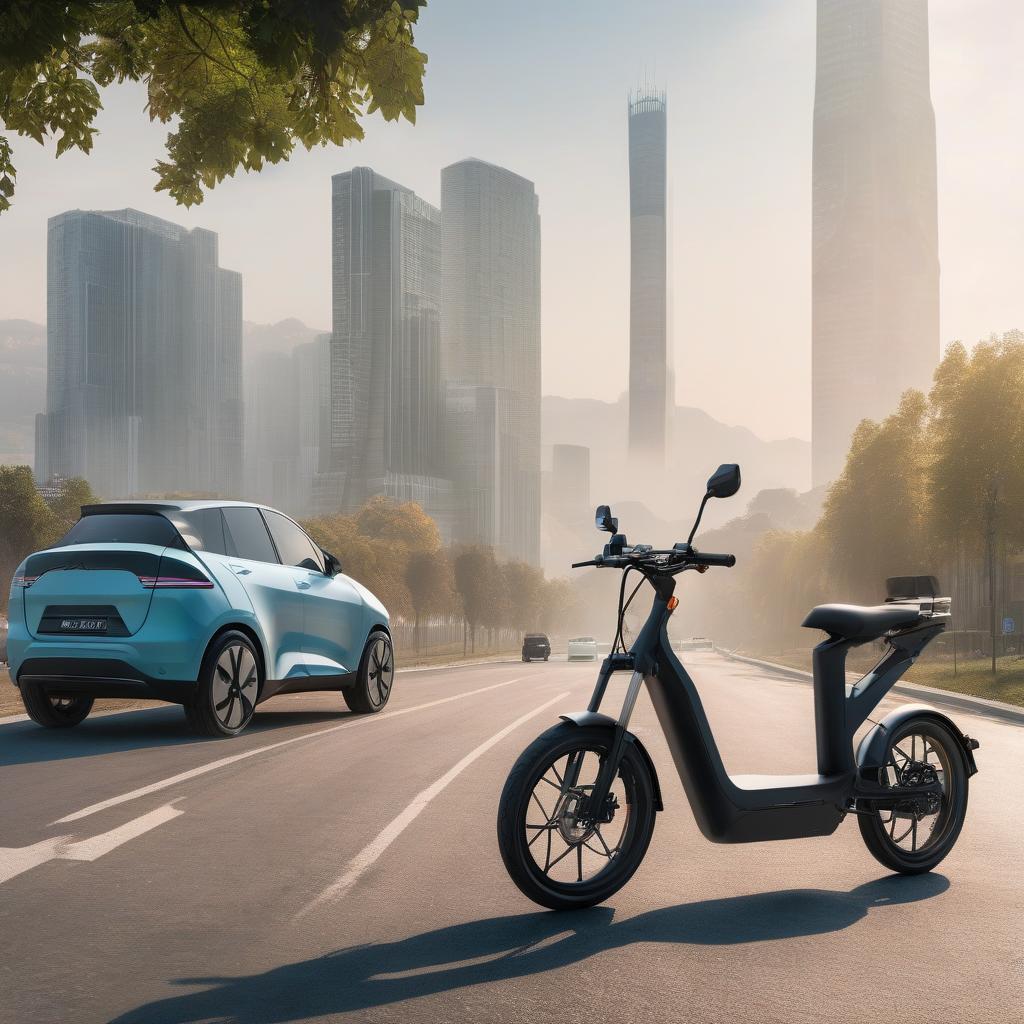In an era where climate change and environmental concerns are at the forefront of global discussions, e-bikes have emerged as a beacon of hope for sustainable transportation. Let’s dive into how these electric-assisted bicycles are contributing to a greener future and why they’re considered a key player in sustainable urban mobility.
The Environmental Impact of E-Bikes
• Carbon Footprint Reduction: E-bikes produce significantly fewer carbon emissions compared to cars, motorcycles, or even public transportation. A study by the European Cyclists’ Federation found that e-bikes produce only about 22 grams of CO2 per kilometer, compared to 271 grams for cars.
• Energy Efficiency: E-bikes are incredibly energy-efficient. They can travel up to 100 miles on the equivalent energy of a single liter of gasoline.
• Reduced Air Pollution: By replacing car trips, e-bikes help decrease air pollution in urban areas, contributing to better air quality and public health.
E-Bikes vs. Other Transportation Methods
- Cars: E-bikes produce about 1/10th the CO2 emissions of a car per kilometer traveled.
- Public Transport: While buses and trains are relatively eco-friendly, e-bikes still come out on top in terms of emissions per passenger.
- Traditional Bicycles: While regular bikes produce zero emissions during use, e-bikes can encourage longer trips and more frequent use, potentially replacing more car journeys.
Sustainability Beyond Emissions
• Reduced Traffic Congestion: E-bikes take up less space on roads and in parking areas, helping to alleviate urban congestion.
• Noise Pollution Reduction: Unlike cars or motorcycles, e-bikes operate almost silently, contributing to quieter, more livable cities.
• Extended Mobility: E-bikes make cycling accessible to a wider range of people, including older adults or those with physical limitations, promoting inclusive sustainable transportation.
The Lifecycle of E-Bikes
While e-bikes are eco-friendly in use, it’s important to consider their entire lifecycle:
- Production: Manufacturing e-bikes, especially their batteries, does have an environmental impact. However, this is offset many times over during the bike’s lifespan.
- Lifespan: Most e-bikes last several years, with replaceable batteries extending their usable life.
- Disposal: Proper recycling of e-bike components, especially batteries, is crucial for minimizing end-of-life environmental impact.
Innovations Enhancing E-Bike Sustainability
• Solar-Powered Charging Stations: Some cities are implementing solar-powered e-bike charging points, further reducing the carbon footprint.
• Recyclable Batteries: Advances in battery technology are making e-bike batteries more recyclable and environmentally friendly.
• Sustainable Materials: Some manufacturers are exploring the use of recycled or biodegradable materials in e-bike production.
E-Bikes and Urban Planning
The rise of e-bikes is influencing urban planning in sustainable ways:
• Bike Infrastructure: Cities are investing in better cycling infrastructure, benefiting all cyclists.
• Bike-Sharing Programs: E-bike sharing schemes are becoming popular in many cities, reducing the need for private vehicle ownership.
• Multi-Modal Transportation: E-bikes are being integrated into broader sustainable transportation plans, complementing public transit systems.
Challenges and Considerations
• Battery Production and Disposal: Ensuring ethical sourcing of battery materials and proper recycling remains a challenge.
• Electricity Sources: The sustainability of e-bikes is influenced by how clean the local electricity grid is.
• Regulatory Framework: Developing appropriate regulations to integrate e-bikes safely into existing transportation systems.
The Future of E-Bike Sustainability
As technology advances, we can expect:
• More efficient batteries with longer lifespans • Integration of renewable energy in e-bike charging systems • Advanced recycling techniques for e-bike components • Greater adoption leading to more car trip replacements
Conclusion: A Sustainable Choice for the Future
E-bikes represent a significant step towards sustainable urban mobility. They offer an eco-friendly alternative to cars, reducing emissions, noise pollution, and traffic congestion. As the technology continues to evolve, e-bikes are poised to play an increasingly crucial role in creating more livable, sustainable cities.
From the production of recyclable, energy-efficient components to the integration of renewable power sources for charging, the e-bike industry is continuously working to minimize its environmental impact. And with more people embracing e-bikes for their commutes, leisure rides, and even cargo transport, the cumulative effect on emissions reduction and energy savings is substantial.
Moreover, e-bikes are expanding the accessibility of cycling, empowering a diverse range of riders to enjoy the benefits of active transportation. This inclusivity is a key aspect of sustainable mobility, ensuring that sustainable transportation options are available to all.
As we look to the future, the continued growth and innovation in the e-bike sector will be crucial in achieving ambitious climate goals and creating more livable, sustainable urban environments. By choosing an e-bike, you’re not just getting an exciting, versatile mode of transportation – you’re also making a tangible contribution to a greener, more sustainable tomorrow.
So, if you’re ready to take your first steps towards a more eco-friendly future, why not consider an electric bicycle? It’s a decision that will not only benefit the planet but also provide you with a fun, efficient, and empowering way to get around. The future of sustainable transportation is here, and it’s two-wheeled, battery-powered, and ready to transform the way we move.


